-
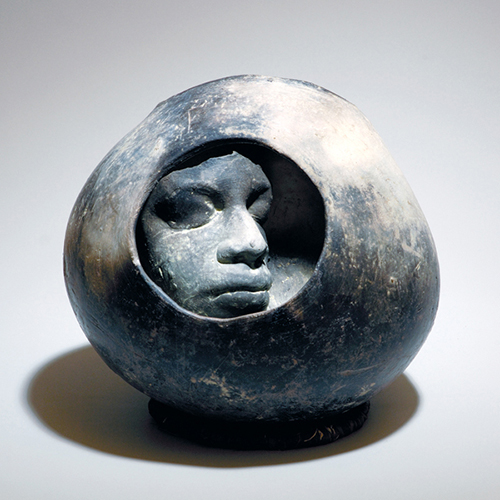 Rashida Ferdinand: Sculpting the Land, Revitalizing a CommunityTransformation and spiritual containment are central to Rashida Ferdinand’s life and art practice.
Rashida Ferdinand: Sculpting the Land, Revitalizing a CommunityTransformation and spiritual containment are central to Rashida Ferdinand’s life and art practice. -
 Cannupa Hanska Luger: Engaging CommunityOften large scale and composed of thousands of components made via collaboration, the work of Cannupa Hanska Luger emphasizes his belief that we need each other.
Cannupa Hanska Luger: Engaging CommunityOften large scale and composed of thousands of components made via collaboration, the work of Cannupa Hanska Luger emphasizes his belief that we need each other. -
 Tearing Down the Gates: Crafting Community Reclaims What Was LostYinka Orafidiya traveled to Ghana to study under master women potters, then held community-focused workshops upon her return to Philadelphia to share the vessel-making process with Black women.
Tearing Down the Gates: Crafting Community Reclaims What Was LostYinka Orafidiya traveled to Ghana to study under master women potters, then held community-focused workshops upon her return to Philadelphia to share the vessel-making process with Black women. -
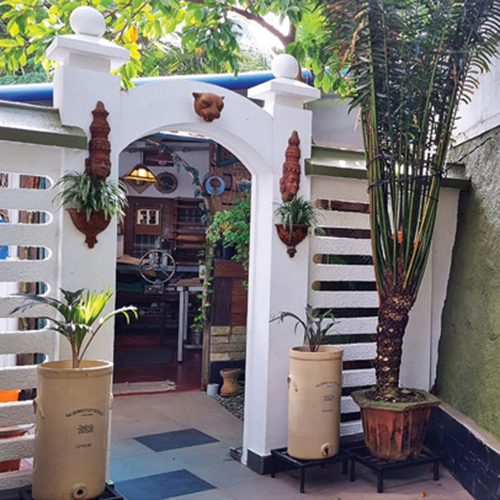 Studio Visit: Byju S R, Thiruvananthapuram, Kerala, IndiaWhen planning his second career as an artist, Byju S R moved to a house with a small studio and flexible outdoor patio space suitable for both larger projects and group workshops alike.
Studio Visit: Byju S R, Thiruvananthapuram, Kerala, IndiaWhen planning his second career as an artist, Byju S R moved to a house with a small studio and flexible outdoor patio space suitable for both larger projects and group workshops alike. -
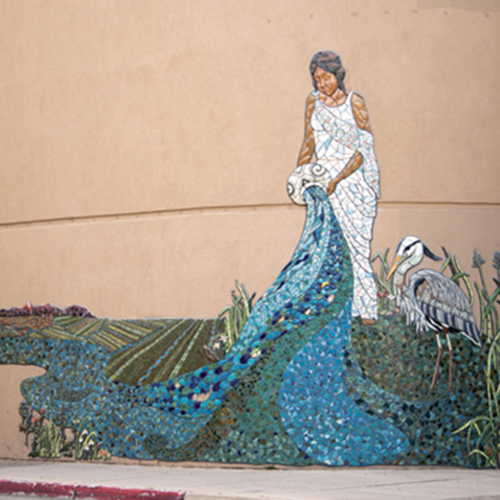 Clay Culture: ALMAAn organization in Albuquerque, New Mexico, gives young artists a chance to learn how to plan, make, and install large-scale mosaics that simultaneously relate meaningful stories and beautify buildings around the region.
Clay Culture: ALMAAn organization in Albuquerque, New Mexico, gives young artists a chance to learn how to plan, make, and install large-scale mosaics that simultaneously relate meaningful stories and beautify buildings around the region. -
 Clay Culture: Kiln ShareThis global database connects kiln owners with those needing to fire their work. Currently boasting 250 kilns, the list is constantly growing.
Clay Culture: Kiln ShareThis global database connects kiln owners with those needing to fire their work. Currently boasting 250 kilns, the list is constantly growing. -
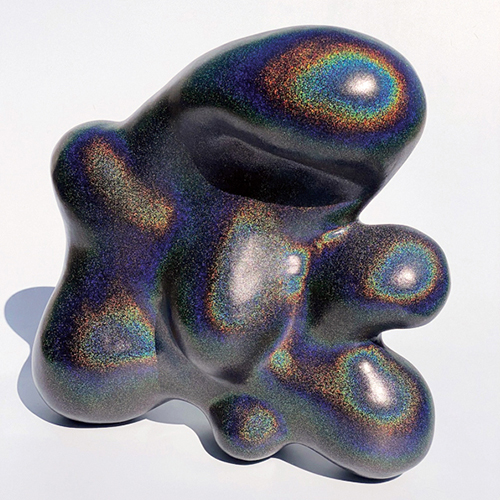 Exposure: April 2022Images from Current and Upcoming Exhibitions
Exposure: April 2022Images from Current and Upcoming Exhibitions -
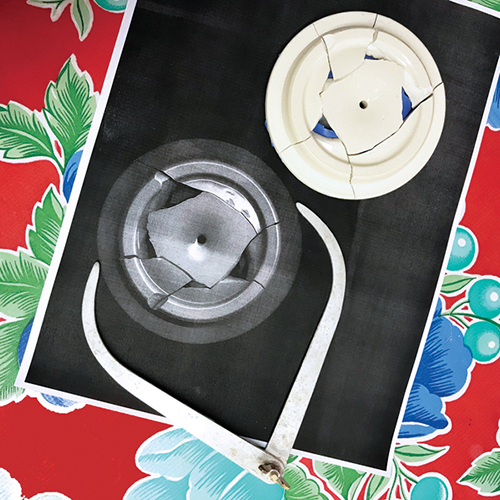 Quick Tip: Calculating Clay ShrinkageHave you ever broken the lid to a fully finished teapot and needed to make a replacement? If you simply measure the lid with calipers, the measurement won’t be accurate.
Quick Tip: Calculating Clay ShrinkageHave you ever broken the lid to a fully finished teapot and needed to make a replacement? If you simply measure the lid with calipers, the measurement won’t be accurate. -
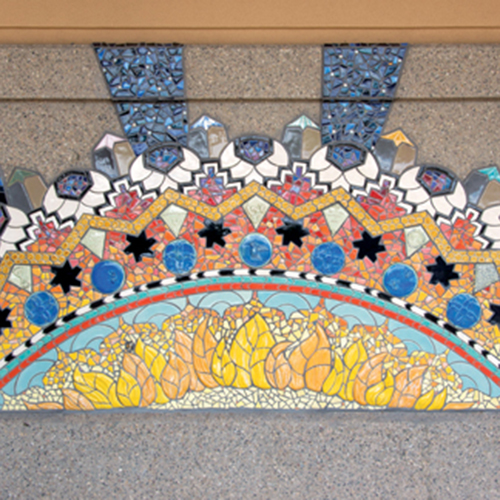 From the Editor: April 2022In this issue, we focus on artists who center community in their studio practice and their lives.
From the Editor: April 2022In this issue, we focus on artists who center community in their studio practice and their lives. -
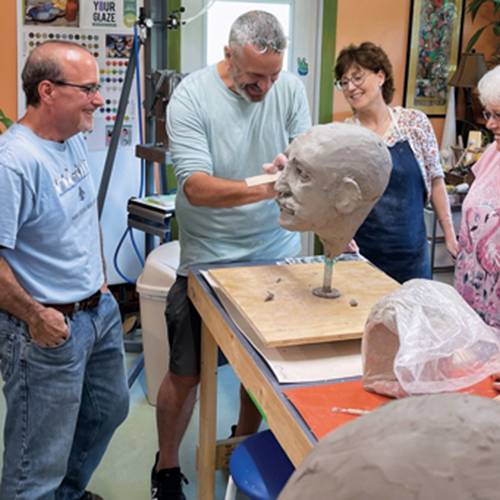 Summer Workshops 2022Want to try a different firing type or learn some new techniques? A summer workshop might be just the thing. Check them out in our annual guide.
Summer Workshops 2022Want to try a different firing type or learn some new techniques? A summer workshop might be just the thing. Check them out in our annual guide. -
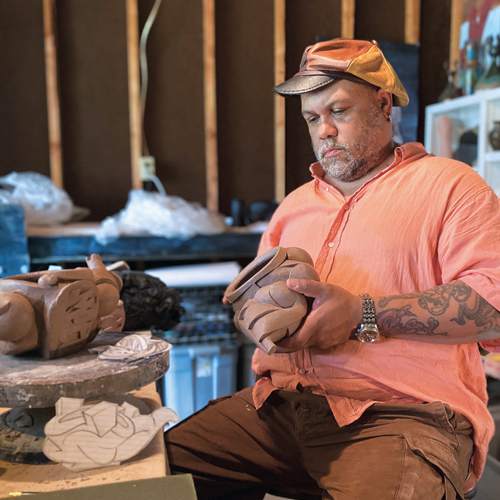 Spotlight: Constants and NetworksMalcolm Mobutu Smith discusses how teaching, improvisation, and a hunger for knowledge inspire him. He also shares his belief in the positive impact that maintaining connections can have throughout an artist’s career.
Spotlight: Constants and NetworksMalcolm Mobutu Smith discusses how teaching, improvisation, and a hunger for knowledge inspire him. He also shares his belief in the positive impact that maintaining connections can have throughout an artist’s career. -
 Call for Entries: March 2022Deadlines for exhibitions, fairs, and festivals.
Call for Entries: March 2022Deadlines for exhibitions, fairs, and festivals. -
 Recipes: From Shino to SlipThese high-fire shino, slip, and glaze recipes work well in atmospheric kilns (soda, salt, and wood).
Recipes: From Shino to SlipThese high-fire shino, slip, and glaze recipes work well in atmospheric kilns (soda, salt, and wood). -
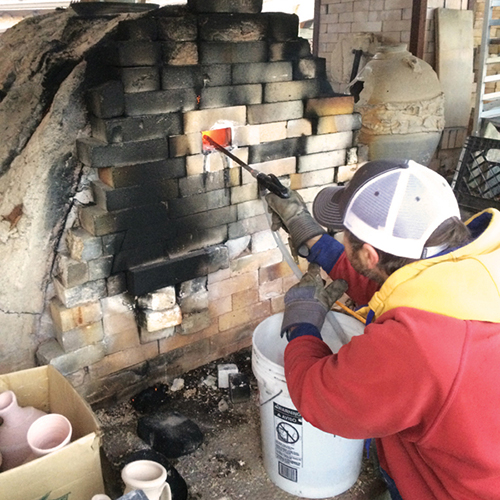 Tips and Tools: Applying SodaThere are many ways to add various types of sodium to a firing kiln. Discover the processes and preferences of several artists.
Tips and Tools: Applying SodaThere are many ways to add various types of sodium to a firing kiln. Discover the processes and preferences of several artists. -
 Techno File: ReductionFor those interested in high-fired ceramics with atmospheric surfaces, it’s not only important to know how fuel-fired kilns heat ware to high temperatures, but also how to create and manage reduction in a kiln.
Techno File: ReductionFor those interested in high-fired ceramics with atmospheric surfaces, it’s not only important to know how fuel-fired kilns heat ware to high temperatures, but also how to create and manage reduction in a kiln. -
 Cultural Mosaic and MigrationMosaics—pictorial and made of tile, and conceptual as emblematic of culture and complexity—serve as the visual language through which ceramic artist Gökden Alpman Matthews creates highly decorative vessels and sculptures.
Cultural Mosaic and MigrationMosaics—pictorial and made of tile, and conceptual as emblematic of culture and complexity—serve as the visual language through which ceramic artist Gökden Alpman Matthews creates highly decorative vessels and sculptures. -
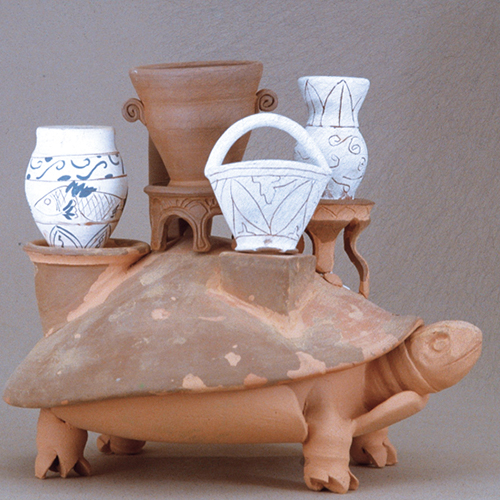 Walter Ostrom: The Personal is PoliticalFrom his decision to pursue ceramics to his choice to use local earthenware clay in his work and classroom, Walter Ostrom has purposefully merged his social and political beliefs with his art practice.
Walter Ostrom: The Personal is PoliticalFrom his decision to pursue ceramics to his choice to use local earthenware clay in his work and classroom, Walter Ostrom has purposefully merged his social and political beliefs with his art practice. -
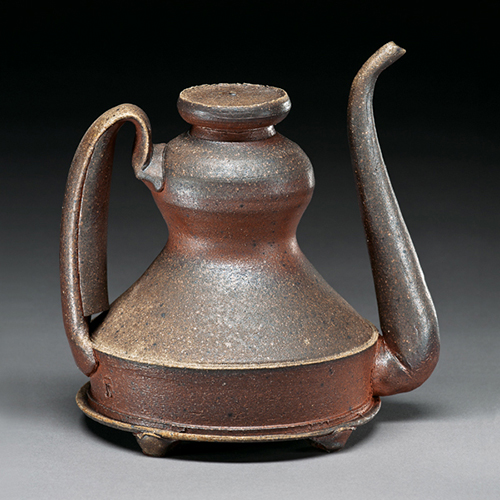 Jane Shellenbarger: Still LearningOver a 45-year career, potter and educator Jane Shellenbarger has traveled, studied, absorbed, and inspired. Her philosophy on teaching grants students the room to find their own solutions, as their questions and curiosity steer each course.
Jane Shellenbarger: Still LearningOver a 45-year career, potter and educator Jane Shellenbarger has traveled, studied, absorbed, and inspired. Her philosophy on teaching grants students the room to find their own solutions, as their questions and curiosity steer each course. -
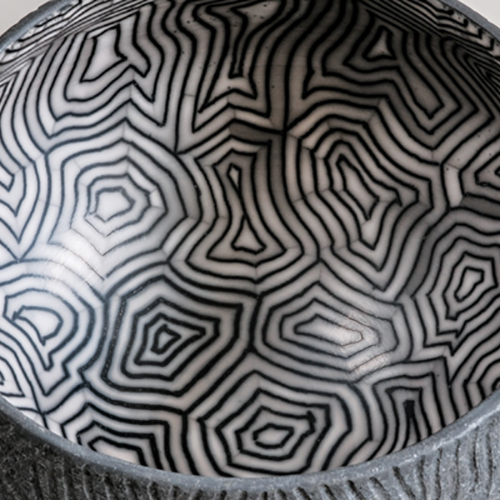 David Roberts: A Passion for RakuA pioneer in contemporary raku techniques in Britain, David Roberts has spent his career investigating and sharing the expressive possibilities of painting with smoke.
David Roberts: A Passion for RakuA pioneer in contemporary raku techniques in Britain, David Roberts has spent his career investigating and sharing the expressive possibilities of painting with smoke. -
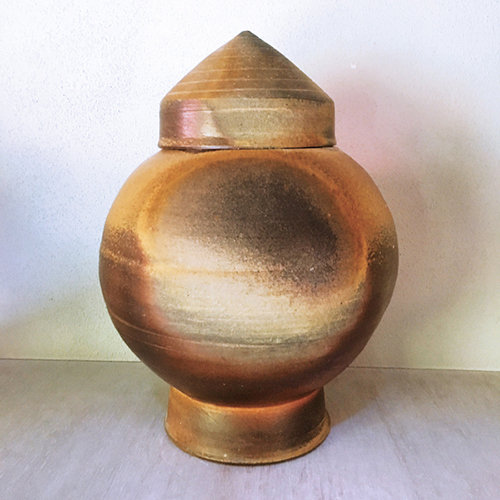 The Clay Manifestations of Dan AndersonDan Anderson creates architecturally inspired, iconic ceramic vessels that reference the industrial-age buildings and company logos common in mid-century Midwestern landscapes.
The Clay Manifestations of Dan AndersonDan Anderson creates architecturally inspired, iconic ceramic vessels that reference the industrial-age buildings and company logos common in mid-century Midwestern landscapes.
- «
- 31
- 32
- 33
- 34
- 35
- 36
- 37 (current)
- 38
- 39
- 40
- »
